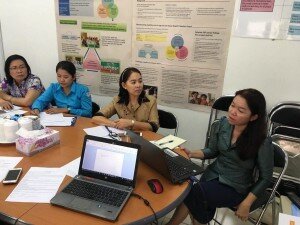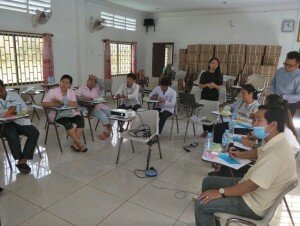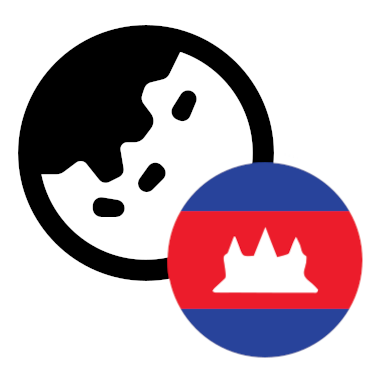
Focus Group Discussion in Phnom Penh
(Photo by Mr. Ly Chanvathanak)
04 October 2018
Under the new “law on regulation of health practitioners”, promulgated by the Cambodian Ministry of Health in December 2016, which aims to protect the health and safety of members of the public, by providing mechanisms to ensure that all health practitioners are qualified, competent and fit to safely practice their profession. The Cambodian Councils of nurses (CCN) and Cambodian Midwives Councils (CMC) are responsible for the implementation of the law and for establishment of the system for licensing/re-licensing health professionals. The councils introduced the concepts of CPD (Continuous Professional Development) as the requirement for initial licensing and re-licensing of healthcare professionals.
GIZ Social Health Protection Project and its Public Private Partnership in Health Project, “Improving Occupational Safety and Health of Healthcare Workers in Hospitals in Cambodia” support the CCN and CMC to improve the skills of nurses and midwives (and thus quality of healthcare) through the award of CPD credit points, as part of the re-licensing process for healthcare professionals. One of the areas that the CCN and CMC asked the projects to support is to develop innovative ideas in CPD policy development, including incorporation of e-learning alongside with face to face training to increase the reach of CPD requirements. While the idea of e-learning holds promise in general; however, the lack of experiences of these methods in Cambodian health sector, the potential acceptability of this form of training by Cambodian nurses and midwives is little known. Thus the projects support the study conducted jointly with CCN/CMC to assess whether e-learning in general is acceptable to Cambodian nurses and midwives and whether the specific e-learning materials (hand hygiene) developed by Aesculap Academy (AA) in English are suitable for use by Cambodian nurses and midwives.
The study is relied on information gathered during four focus group discussions using a 60 minutes hand hygiene video developed by AA to show (original in English with Khmer simultaneous translation by a Khmer translator and facilitator) to participants, then followed by focus group discussion using semi-structured questionnaires with 45 Cambodian nurses and midwives, from six national hospitals in Phnom Penh and two provincial and district hospitals in Kampot and Kampong Thom provinces, which provided different levels of complementary packages activities (national level, CPA3 and CPA 2). Total 45 individuals: 27 nurses (15 male, 12 females) and 18 midwives(all female) were identified based on their availability, their convenience, their involvement in routine clinical works and their willingness to participate in the study.

Focus Group Discussion in Kampong Thom
(Photo by Mr. Ly Chanvathanak)
The main findings showed e-learning method is a suitable and acceptable approach as one of the CPD tools in Cambodia for a re-licensing system. In general, e-learning provided much more benefits (with the same effectiveness as traditional methods) to health workers, compared to traditional face to face training, including saving time (for travel), saving cost (for food, accommodation and cost that are related to their absence from workplace) and convenience (they can select time, place and pace for their study). Some participants were willing to pay to participate in e-learning programs. However, there are some barriers identified such as their low level of English proficiency, lack of high speed internet access, low level of computer skills and internet technology skills, posed challenges to the roll out of this method. For the specific hand hygiene e-learning video developed by AA, there are some complaints on the 60 minute length which seems too long, while some other complaints of the Western style and culture of the instructor in the video as well as their low English proficiency.
In summary, participants showed great interest in the AA e-learning approach as a potential training tool for CPD in Cambodia. However, low levels of English proficiency, limited experience with internet technology and lack of high speed internet outside Phnom Penh were seen as possible barriers to the successful introduction of E-learning in health setting in Cambodia. At minimum, the e-learning materials should be dubbed or subtitled into Khmer to ensure they are well understood by Cambodian audience. It was also noted that having a local TOT trainer at participating hospitals to provide technical support would facilitate the implementation of an e-learning approach.
Data Protection
Disclaimer
